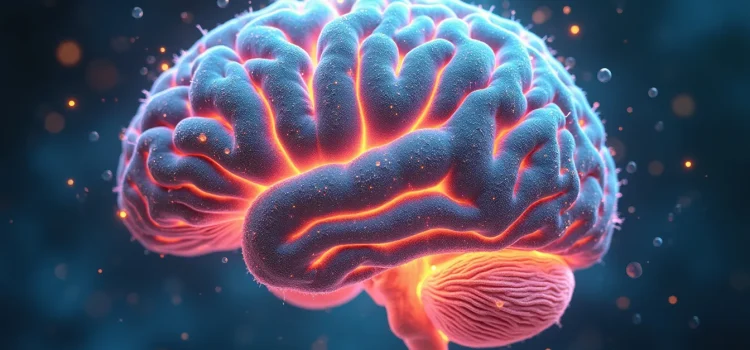

This article is an excerpt from the Shortform book guide to "The Blank Slate" by Steven Pinker. Shortform has the world's best summaries and analyses of books you should be reading.
Like this article? Sign up for a free trial here.
Is there more to the human mind than just physical processes? Could our consciousness be something beyond the material world?
In The Blank Slate, Steven Pinker examines the age-old debate about whether our minds are separate from our bodies. Pinker challenges the traditional view that connects dualism and free will, and he presents scientific evidence to back up his argument.
Read on to get into this thought-provoking exploration of consciousness, free will, and the nature of the human mind.
Dualism and Free Will
In his book, Pinker critiques the connection made between dualism and free will. Dualism is the view that the body is entirely physical while the mind is entirely non-physical. Popularized by 17th-century French philosopher René Descartes, dualism implies that the mind can’t be understood using the mechanistic laws of physics, since those laws only apply to physical objects. On the contrary, dualists believe that the mind is an eternal soul that outlives the body and isn’t bound by the laws of nature.
(Shortform note: Although Descartes’s version of dualism described the mind as an immaterial entity entirely distinct from the brain, contemporary versions of dualism often diverge from this view. For example, some philosophers have defended emergent dualism, according to which the mind emerges from, but isn’t identical to, the physical brain. In this view, the mind depends on the brain to exist, even though it’s not identical to it.)
The Alleged Benefit of Dualism
Advocates of the mainstream view also argue that it explains an essential part of human nature: free will. Pinker relates that, according to these advocates, dualism recognizes that we have free will because dualism entails that our actions aren’t bound by deterministic laws of nature.
According to many dualists, if dualism were false, then our minds would be physical objects (likely our brains) governed by the laws of nature. Then, Pinker clarifies, we’d seem to lose the defining feature of free will—the ability to choose otherwise. For example, if a criminal’s decision to rob a bank was predetermined by the laws of nature, it seems that they had to rob the bank, meaning they didn’t act freely. However, if that criminal’s mind were non-physical, their decision to rob the bank wouldn’t have been constrained by the laws of nature, meaning they could’ve acted freely.
(Shortform note: This dualist argument rests on the assumption that, if we couldn’t have chosen to do otherwise, we didn’t act freely. However, many philosophers have challenged this assumption by constructing hypotheticals in which people seem to act freely despite not being able to choose otherwise. For example, imagine that a mad scientist installed a chip in your brain that only activates if you’re going to vote for someone other than his preferred political candidate, President Smith. According to these philosophers, if you were going to vote for Smith anyway, then your decision to vote for Smith would still be free since the chip would remain inactive—even though you couldn’t have voted any other way.)
Pinker’s Response
Pinker, however, argues that this opposition to determinism hinges on a fallacy—the inference that fully explaining the causes of behavior amounts to showing the behavior wasn’t free. In the case of the bank robber, for example, someone might infer that because the robber’s actions were caused by forces outside their control (such as their genes and environment), their decision to rob the bank wasn’t free.
But Pinker argues that this inference isn’t valid because the alternative is that only unexplained actions can be free. Unexplained actions, however, are byproducts of random chance, and it’s clear that random actions aren’t free—for instance, if all our decisions were the result of a random coin flip, that wouldn’t qualify as free will. Thus, Pinker concludes that free will must be compatible with determinism’s comprehensive explanations of our behavior.
(Shortform note: Pinker’s response—that unexplained actions are byproducts of random chance—overlooks the view that free will only requires probabilistic explanations of our actions. Some philosophers claim that while fully predetermined actions can’t be free, actions that follow a probability distribution can be. For example, say you had an 85% chance of voting for President Smith in the voting booth. According to this account, the fact that you had an 85% chance of voting for Smith offers a probabilistic explanation of your action, even though this explanation isn’t deterministic.)
The Scientific Argument Against Dualism
Finally, Pinker argues that cognitive science undermines dualism because it has shown that the mind can be a purely physical entity. Specifically, he contends that the computational theory of mind (CTM) provides a framework for understanding how the mind could arise in a physical world.
According to the CTM, the mind is analogous to a computer. Mental processes—such as reasoning, learning, and remembering—are computer processes that take inputs from the physical world and yield the correct output. For example, your eyes provide the input from processing a cherry blossom tree with pink flowers, leading to the output, which might be your belief that cherry blossoms are in bloom.
Crucially, Pinker points out that the CTM doesn’t require that any part of the mind be non-physical. After all, the inputs are first processed by physical body parts (like your eyes, ears, and skin). Then, the outputs are processed by physical structures in the brain.
| The Chinese Room Argument Against the CTM While Pinker suggests that the CTM refutes dualism, other scholars point out that the CTM is deeply contentious and subject to various counterarguments. The most famous of these is John Searle’s Chinese room argument, which holds that the CTM deeply misinterprets the nature of consciousness. Searle first notes that, according to the CTM, consciousness is essentially a matter of various inputs leading to the “correct” outputs. For instance, the sensation of a burning hot stove (the input) might lead you to scream in pain (the output). However, Searle uses a hypothetical scenario to argue that this picture of consciousness is incomplete: Imagine that a monolingual English speaker is locked in a room with a computer program that responds to Chinese characters as if in conversation. Outside the room, native Chinese speakers write Chinese messages on a piece of paper and slip it under the door. The English speaker then feeds the characters through the computer program, writes the program’s output characters that respond to the input message on the paper, and puts it back through the door. In this way, the Chinese speakers outside believe they’re conversing with a fellow Chinese speaker. According to Searle, if the CTM were correct, then there should be some conscious entity in the room that understands Chinese—after all, the inputs yielded correct outputs. But, intuitively, neither the native English speaker nor the computer program actually understands Chinese, since the speaker just mindlessly slides Chinese characters under the door. For this reason, Searle concludes that consciousness can’t just be a matter of inputs yielding correct outputs (as the CTM proposes). |

———End of Preview———
Like what you just read? Read the rest of the world's best book summary and analysis of Steven Pinker's "The Blank Slate" at Shortform.
Here's what you'll find in our full The Blank Slate summary:
- Why the view that humans are a blank slate is wrong
- Why humans have an innate tendency toward conflict
- How children’s personalities are inherited from their parents






